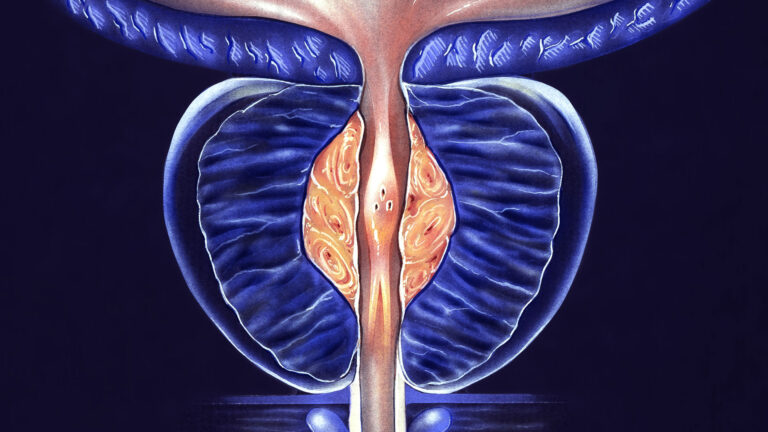Introduction
Intradiscal ozone therapy is a minimally invasive treatment that is increasingly supported by peer-reviewed clinical research for disc herniation, chronic back pain, and radiculopathy. Below are 10 of the most significant research articles, selected for their high-quality methodology, long-term outcomes, and real-world relevance to patient care.
1. Five and Ten Year Follow-Up on Intradiscal Ozone Injection for Disc Herniation (2015)
📄 Read Full Text (International Journal of Spine Surgery)
Authors: Buric J, Rigobello L, Hooper D
Key Findings:
- 75% of patients experienced lasting relief for up to 10 years
- Consistent MRI-documented reduction in disc size
- Avoidance of surgery and repeated epidural injections
Clinical Significance:
This is the longest available follow-up study on ozone therapy, showing it can offer durable relief without compromising future surgical options.
2. Effectiveness of Intradiscal Ozone Injections: Systematic Review and Meta-Analysis (2024)
📄 Read Abstract (Journal of Back and Musculoskeletal Rehabilitation)
Authors: Chang MC, Choo YJ, Denis I, Mares C, Majdalani C, Yang S
Key Findings:
- Superior to steroids and oral meds in long-term (≥6 months) outcomes
- Confirmed statistically significant improvements across multiple studies
Clinical Significance:
This latest comprehensive analysis confirms ozone therapy outperforms conventional treatments in long-term pain relief and mobility.
3. Intradiscal Oxygen-Ozone Chemonucleolysis vs. Microdiscectomy: Non-Inferiority Trial (2022)
📄 Read Abstract (The Spine Journal)
Authors: Kelekis A, Bonaldi G, Cianfoni A, et al.
Key Findings:
- Ozone was non-inferior to surgery in pain relief at 6 months
- 71% of patients avoided surgery entirely
- Similar rapid improvement in both groups
Clinical Significance:
This RCT is a landmark trial showing ozone therapy is as effective as surgery without the surgical risks.
4. Medical Ozone as a Therapeutic Option in Musculoskeletal Pain Control: Critical Review (2024)
📄 Read Full Article (Yale Journal of Biology and Medicine)
Authors: de Araújo LT, da Silva PC, Masini M
Key Findings:
- 92% of reviewed studies showed no adverse effects
- Effective across a wide range of musculoskeletal pain conditions
- High safety and cost-effectiveness profile
Clinical Significance:
This 2024 review validates ozone as a low-risk, high-reward therapy in pain medicine.
5. Efficacy of Intradiscal Ozone Therapy vs Steroid Injection: Double-Blind Study (2020)
📄 Read Abstract (Pain Physician)
Authors: Ercalik T, Kilic M
Key Findings:
- Ozone alone was sufficient for treating low back and leg pain
- No added benefit from combining with steroids
- Supports simpler, safer treatment protocols
Clinical Significance:
This RCT reinforces that ozone therapy as monotherapy is highly effective, reducing the need for corticosteroids.
6. Andreula C. et al. (2003) — “Minimally Invasive Oxygen-Ozone Therapy for Lumbar Disk Herniation”
Key Findings:
- Treated over 600 patients
- 70–80% success rate
- Very low complication rate
Clinical Significance:
This seminal study helped launch widespread clinical interest in intradiscal ozone in Europe.
7. Bonetti M. et al. (2005) — “O2-O3 vs. Steroid Injections for Sciatica”
Key Findings:
- Ozone more effective than steroids
- Fewer side effects and longer-lasting relief
Clinical Significance:
Proved that ozone is superior to standard epidural steroid injections in sciatica caused by herniated discs.
8. Magalhães FN. et al. (2012) — “Systematic Review of Ozone Therapy for Lumbar Disc Herniation”
📄 Read Full Text (Pain Physician)
Key Findings:
- Reviewed 12 studies
- Confirmed safety and efficacy
- Statistically significant improvements in pain and function
Clinical Significance:
This paper helped standardize evidence-based use of ozone therapy globally.
9. Gallucci M. et al. (2007) — “Imaging-Guided Ozone Therapy”
📄 Read Abstract (European Spine Journal)
Key Findings:
- High precision under CT/fluoroscopy guidance
- Effective in outpatient spine management
Clinical Significance:
Highlights the importance of imaging-guidance to maximize safety and outcomes.
10. Buric J. et al. (2011) — “Oxygen-Ozone Therapy vs Conservative Treatment”
📄 Read Abstract (Acta Neurochirurgica Supplement)
Key Findings:
- Randomized controlled trial
- Ozone group saw greater pain and mobility improvements
Clinical Significance:
Supports ozone therapy as a frontline treatment for lumbar disc herniation.
Conclusion
These 10 top studies, ranging from randomized trials to systematic reviews and 10-year follow-ups, present a strong clinical case for intradiscal ozone therapy as a viable alternative to spinal surgery and long-term drug use. With growing global acceptance and proven long-term outcomes, ozone therapy is a powerful option in non-surgical spine care.
Dr. A Disc Care is proud to offer this safe, evidence-based treatment using the latest image-guided protocols. Schedule a consultation today or view our other services.
Contact Us
Send us an email
Questions? Submit the contact form to get in touch with us or schedule an appointment.






